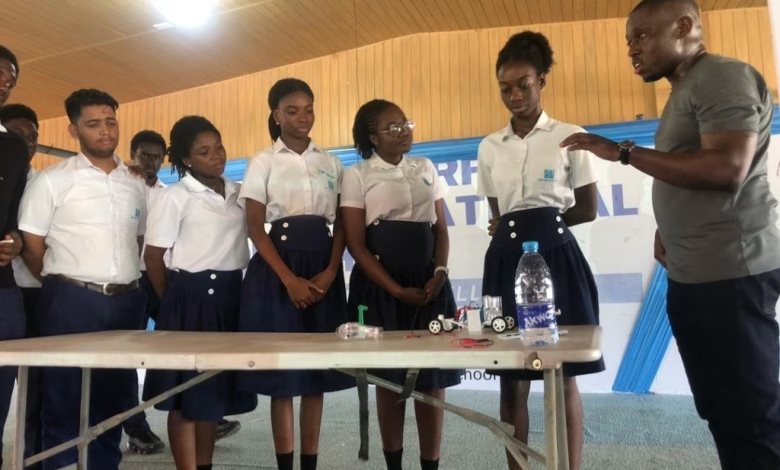Hydrogen in Electric Cars A New Learning Approach in Ghana

- EAIS students introduced to Project-Based Learning (PBL) on "Hydrogen in Electric Mobility"
- The initiative aims to transform STEM education in Ghana, focusing on clean energy
- Funded by The British Council and The Royal Academy of Engineering
Students at East Airport International School (EAIS) in Accra were introduced to Project-Based Learning (PBL) through a special session on “Understanding the Role of Hydrogen in Electric Mobility.”
This initiative is part of an effort to reshape STEM education in Ghana, providing students with practical skills and innovative thinking to solve real-world problems. Funded by The British Council and The Royal Academy of Engineering, it focuses on integrating PBL methods into Science, Technology, Engineering, and Mathematics (STEM) education, with a special emphasis on clean energy.
During the interactive session, led by Dr. Tabbi Wilberforce Awotwe, a Ghanaian-born lecturer in Engineering Education at King’s College London, students explored hydrogen’s role in electric mobility and brainstormed their own hydrogen-powered vehicle ideas. Dr. Awotwe highlighted the importance of Project-Based Learning in transforming students into creative problem solvers and innovators. He also emphasized the need for long-term partnerships between Ghanaian and UK institutions to tackle climate challenges through education.
The program, still in its early stages, aims to reach over 650 students across Ghana, including both high school and university students, nurturing future innovators in fields like clean energy, robotics, and AI. Teachers at EAIS praised the session for inspiring students and sparking their curiosity.
As Ghana aligns its education strategy with sustainable development goals, this focus on clean energy within STEM classrooms could position the country as a leader in providing African-driven solutions for a greener future.






